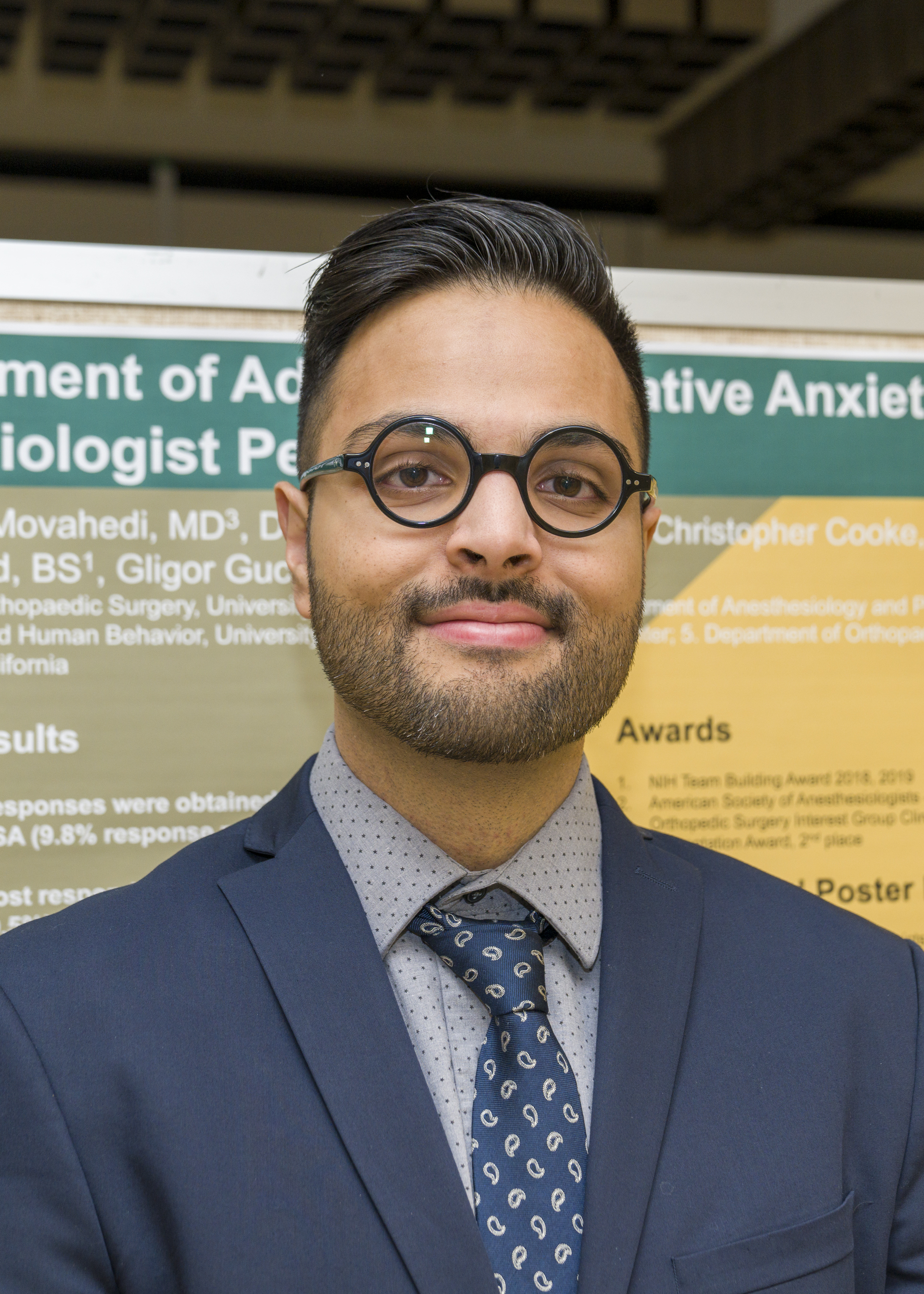Arif Musa, second-year medical student at Wayne State University School of Medicine, has published the first systematic review of the antiviral medication remdesivir for the treatment of COVID-19 in humans.

The review was published in the University of California’s online open access Western Journal of Emergency Medicine. An addendum to the review is also available.
Systematic reviews identify relevant scientific publications. They are especially useful when studies about a certain topic are conflicting. They use the scientific method to search several scientific databases, making them comprehensive and replicable.
“Remdesivir has been proposed as a potential treatment for COVID-19. We wrote our systematic review to not only inform the scientific community, but also improve transparency between researchers and public. We used a systematic review study design so that the search can be reproduced at a later date when more evidence is available,” Musa said. “To improve transparency, we have decided to publish our paper in an open-access format. As a result, our findings will be freely available to anyone, regardless of the socioeconomic status, academic affiliation or any other barriers. This is the future of scientific research, and medical students at Wayne State University support informing Detroiters and all Americans about remdesivir.”
The study found that despite encouraging data primarily from in vitro studies, the effectiveness and potential side effects of remdesivir remain incompletely defined in humans with COVID-19.
“Remdesivir was originally developed for treatment of other viruses, but studies have shown its effectiveness against the novel coronavirus. Dr. (Anthony) Fauci and the National Institute of Allergy and Infectious Diseases recently found that remdesivir was effective after a review of the ACT trial. The data are encouraging, but these are preliminary findings. We encourage physicians to make informed decisions about whether to administer remdesivir to patients with COVID-19. Luckily, we expect the complete findings from the ACT trial to be published soon, and many more trials are ongoing. The initial signs are good. Hopefully the future ones will be better,” Musa said.
The project was multi-disciplinary, involving physicians from Internal Medicine, Emergency Medicine and Infectious Diseases, and multi-institutional, with collaborators from Wayne State working with physicians from the University of Southern California Keck School of Medicine in Los Angeles; Western University of Health Sciences in Pomona, Calif.; William Carey University College of Osteopathic Medicine in Hattiesburg, Miss.; and Southern California University of Health Sciences School of Professional Studies in Whittier, Calif.
Other collaborators included Kasim Pendi, Areio Hashemi, Elizabeth Warbasse, Jenna Yousif, Emily Blodget, Besma Aly, David Baron and WSU Assistant Professor of Emergency Medicine Sarkis Kouyoumjian, M.D. ’98
Dr. Kouyoumjian is an Emergency Medicine physician practicing at Detroit Receiving Hospital and Sinai Grace Hospital.
“I feel as if I am a part of this community and it is an honor to take care of our patients. As you know, we got hit hardest in Detroit and Wayne County, and Sinai Grace unfortunately made national news with the unfortunate deaths of so many patients. It has been a very challenging time to work as an emergency physician during these times. We struggled with a heavy case load, a disease that we did not understand, and mass shortages of equipment and supplies. We knew so little about this disease at first and early treatment with Hydroxychloroquine, although promising, was not the panacea we all thought it would be. We, as physicians, were looking for treatment options to do the best for our patients and to try to save lives,” Dr. Kouyoumjian said. “Physicians on the frontline involved in the treatment of patients with COVID-19 find it difficult to make informed decisions regarding treatment regimens. We should make a decision to administer remdisivir based on the highest quality evidence in the literature. That is why we wrote the systemic review. It was important and vital information that needed to be disseminated.”
Physicians now have the power to request remdesivir following the May 1 Emergency Use Authorization by the U.S. Food and Drug Administration.
The School of Medicine opened the Office of Medical Student Research and Innovation in 2017.
“The COVID-19 pandemic crisis will only be solved if students, professors and physicians alike put their heads together to find solutions that work based on real, scientific evidence,” Musa said.